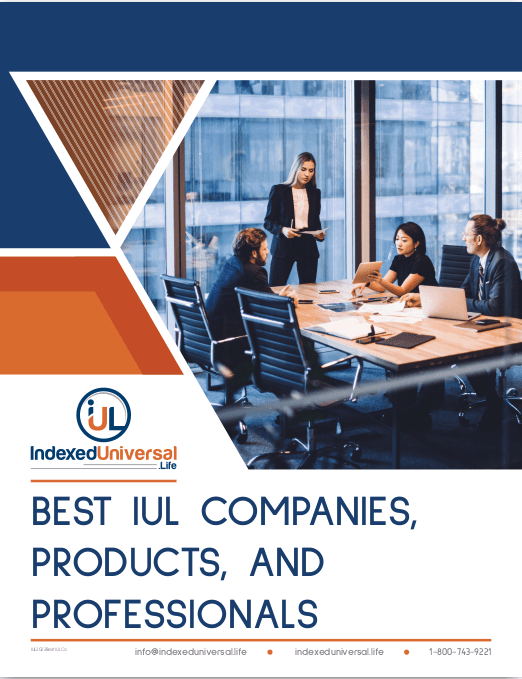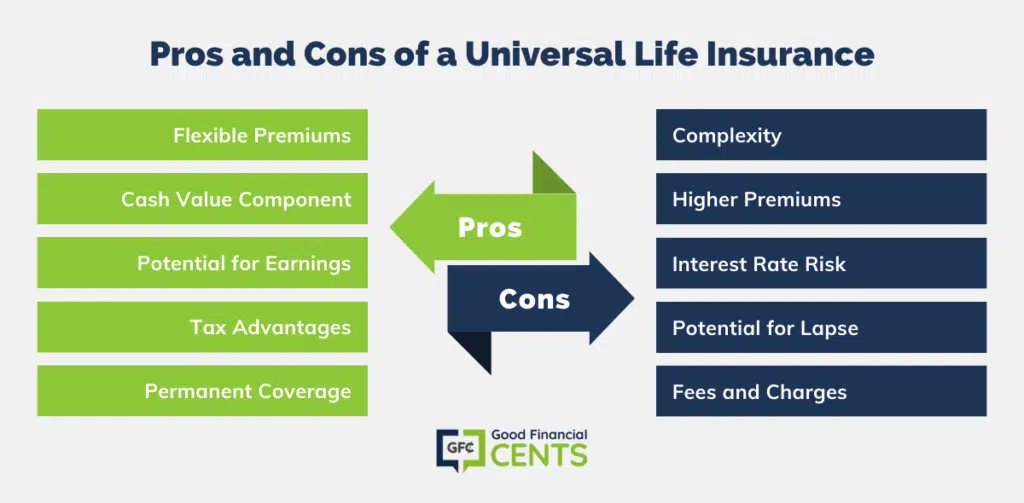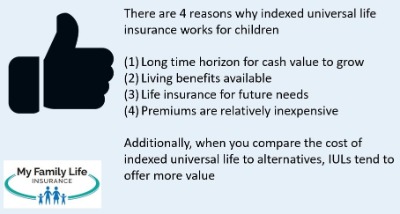All Categories
Featured
Table of Contents
Do they contrast the IUL to something like the Lead Overall Supply Market Fund Admiral Shares with no lots, a cost ratio (EMERGENCY ROOM) of 5 basis points, a turnover proportion of 4.3%, and a phenomenal tax-efficient record of circulations? No, they compare it to some awful proactively taken care of fund with an 8% load, a 2% EMERGENCY ROOM, an 80% turn over proportion, and a terrible record of temporary funding gain circulations.
Shared funds commonly make yearly taxed distributions to fund proprietors, also when the value of their fund has gone down in worth. Shared funds not just call for earnings reporting (and the resulting annual taxes) when the mutual fund is going up in worth, yet can also impose income taxes in a year when the fund has actually decreased in value.
That's not how mutual funds function. You can tax-manage the fund, gathering losses and gains in order to lessen taxable distributions to the capitalists, yet that isn't in some way mosting likely to alter the reported return of the fund. Only Bernie Madoff kinds can do that. IULs stay clear of myriad tax catches. The possession of common funds might require the shared fund proprietor to pay projected taxes.

IULs are very easy to place to make sure that, at the owner's fatality, the beneficiary is not subject to either income or inheritance tax. The very same tax obligation decrease methods do not function nearly also with mutual funds. There are numerous, often pricey, tax obligation traps connected with the timed purchasing and marketing of shared fund shares, traps that do not use to indexed life insurance policy.
Opportunities aren't very high that you're going to undergo the AMT because of your mutual fund circulations if you aren't without them. The rest of this one is half-truths at finest. While it is true that there is no revenue tax due to your successors when they inherit the profits of your IUL plan, it is also true that there is no revenue tax obligation due to your successors when they inherit a shared fund in a taxable account from you.
Universal Life Resources
The federal inheritance tax exception restriction is over $10 Million for a couple, and expanding each year with rising cost of living. It's a non-issue for the vast majority of medical professionals, much less the rest of America. There are better ways to stay clear of estate tax problems than purchasing financial investments with reduced returns. Mutual funds might cause earnings taxes of Social Protection advantages.

The growth within the IUL is tax-deferred and may be taken as tax free income using fundings. The policy owner (vs. the shared fund manager) is in control of his or her reportable earnings, therefore enabling them to minimize and even remove the taxation of their Social Safety benefits. This set is excellent.
Below's an additional very little issue. It holds true if you get a common fund for say $10 per share prior to the circulation day, and it disperses a $0.50 circulation, you are then going to owe tax obligations (possibly 7-10 cents per share) in spite of the truth that you have not yet had any type of gains.
In the end, it's actually about the after-tax return, not exactly how much you pay in taxes. You are going to pay even more in tax obligations by utilizing a taxed account than if you purchase life insurance coverage. You're additionally probably going to have even more money after paying those tax obligations. The record-keeping requirements for possessing shared funds are dramatically more complex.
With an IUL, one's records are maintained by the insurer, copies of yearly declarations are mailed to the proprietor, and circulations (if any kind of) are amounted to and reported at year end. This one is additionally type of silly. Of training course you should keep your tax records in situation of an audit.
Equity Index Insurance
All you need to do is push the paper into your tax folder when it appears in the mail. Hardly a reason to get life insurance policy. It resembles this man has actually never purchased a taxable account or something. Mutual funds are commonly part of a decedent's probated estate.
Additionally, they undergo the delays and expenses of probate. The proceeds of the IUL policy, on the other hand, is constantly a non-probate circulation that passes beyond probate straight to one's named beneficiaries, and is for that reason not subject to one's posthumous financial institutions, unwanted public disclosure, or similar delays and prices.
Medicaid disqualification and life time income. An IUL can offer their owners with a stream of revenue for their entire lifetime, regardless of exactly how lengthy they live.

This is advantageous when arranging one's events, and converting possessions to earnings prior to an assisted living home confinement. Mutual funds can not be transformed in a similar fashion, and are generally thought about countable Medicaid assets. This is an additional dumb one supporting that bad people (you understand, the ones that require Medicaid, a federal government program for the bad, to pay for their assisted living home) should make use of IUL rather of mutual funds.
Iul Calculator
And life insurance policy looks dreadful when contrasted relatively versus a pension. Second, individuals that have money to buy IUL over and past their pension are going to have to be awful at handling cash in order to ever get Medicaid to spend for their retirement home costs.
Persistent and terminal ailment rider. All plans will certainly allow an owner's very easy access to cash money from their policy, commonly waiving any abandonment charges when such people suffer a significant disease, need at-home treatment, or become restricted to an assisted living home. Shared funds do not offer a similar waiver when contingent deferred sales costs still relate to a common fund account whose proprietor requires to offer some shares to money the expenses of such a remain.
Guaranteed Universal Life Insurance For Seniors
You obtain to pay more for that advantage (rider) with an insurance coverage policy. Indexed global life insurance coverage provides death advantages to the beneficiaries of the IUL owners, and neither the owner nor the beneficiary can ever lose money due to a down market.
Currently, ask yourself, do you actually need or want a death advantage? I certainly don't require one after I reach economic self-reliance. Do I want one? I expect if it were low-cost enough. Of program, it isn't inexpensive. On average, a purchaser of life insurance policy pays for real price of the life insurance coverage benefit, plus the expenses of the policy, plus the profits of the insurance coverage business.
Iul Vs Term
I'm not entirely sure why Mr. Morais tossed in the entire "you can't lose cash" once again below as it was covered rather well in # 1. He just intended to repeat the most effective selling point for these points I intend. Again, you do not lose small bucks, yet you can lose real dollars, in addition to face serious possibility expense because of low returns.

An indexed universal life insurance policy plan proprietor might exchange their policy for an entirely various policy without triggering income taxes. A mutual fund proprietor can not relocate funds from one mutual fund company to one more without selling his shares at the former (hence causing a taxable occasion), and buying brand-new shares at the latter, typically subject to sales charges at both.
While it holds true that you can trade one insurance coverage plan for one more, the factor that people do this is that the very first one is such a dreadful policy that even after buying a new one and undergoing the very early, negative return years, you'll still appear ahead. If they were marketed the ideal policy the very first time, they should not have any desire to ever trade it and experience the early, unfavorable return years once more.
Latest Posts
Universal Interest
Index Life Insurance Pros And Cons
Ul Mutual Life Insurance